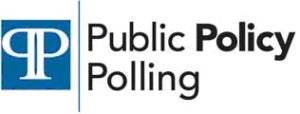
TO: Interested Parties
FROM: Tom Jensen, Public Policy Polling
DT: Wednesday, Nov 7
RE: Exit Polling Shows Health Care Defined Midterm, Fueled Democrats’ Win
Exit polling conducted by Public Policy Polling on Tuesday makes clear that health care was the defining issue in the 2018 House elections and Democrats’ advantage on the issue was the primary driver of their victory – leading to Democratic control of the House of Representatives. PPP surveyed 2,326 people who said they voted on election day within one of 75 Republican-held Congressional districts that were listed by the Cook Report as competitive prior to the election. These were the battleground races for control of the House in 2018 and, from these races, come the Democratic gains that will put them in the majority.
Across the competitive Republican-held seats – the ones Democrats needed to win to take the majority – health care was a defining issue for an overwhelming majority (63%) and Democrats had an 8 point advantage (52% to 44%) on the issue.
The exit poll surveyed 75 competitive, Republican-held districts as defined by the Cook Political Report on the day before the election – Republican-held seats that ranged from Lean Republican to Likely Democrat, with 57 of them falling into the ‘Lean Republican’ or ‘Toss Up’ categories. Democrats needed to win 23 of these seats to take the majority and about two thirds of them supported President Trump in 2016. Despite Hillary Clinton winning the national popular vote by 2 points in 2016, this universe of districts said they voted for Donald Trump by 4 points, making this set of districts 6 points more Republican leaning than the country as a whole.
Democrats won on health care. By an 8 point margin (52% to 44%) voters trusted Democrats over Republicans and President Trump on the issue of health care. This lead expanded to 22 points with independents at 57/35.
- By 11 points (50% to 39%) voters in these districts said the Democratic candidate was more in step with their views on health care than the Republican candidate, including 18 point margins with women and 28 points with younger voters.
Health care was the top issue. 63% of voters said health care was an important issue (21% the most important, 42% a very important issue). When asked to pick the issue most important to their vote, 24% picked health care to 24% for immigration, 15% for taxes, 11% for the Supreme Court, and 5% for security and crime. Among those voters who chose health care as the single most important issue, 88% voted Democratic to only 10% who voted Republicans.
- Among voters who said they voted for a Democrat for Congress, health care was an important issue for 83% (32% the most, 51% a very important issue). 41% picked health care as their top issue from a list of choices, with nothing else exceeding 11%.
The debate in these elections was about health care and it hurt the GOP. 74% of voters heard about their Republican Congressman’s positions on health care – 41% hearing a lot and 33% hearing some or just a little. What they heard was seen as negative by 9 points (36% mostly negative to 27% mostly positive).
Voters rejected Republican candidates who support health care repeal. 44% of voters said a Republican candidate’s support for repeal made them less likely to vote for them, to only 35% who said more likely.
Republicans lost on pre-existing conditions. Voters trust Democratic candidates over Republican candidates by 17 points (51% to 34%) to protect health care for people with pre-existing conditions, including by 33 points among independent voters, 56-23.
- 66% of voters said protections for pre-existing conditions was an important issue (32% the most important, 34% a very important issue).
- Among those who said protections for pre-existing conditions was important, they voted for the Democratic candidate by 67% to 30%.
Republicans lost on health care costs. Voters trusted Democratic candidates over Republican candidates by 9 points (48% to 39%) on the costs of health care, including by 15 points among women, 51-36.
- 61% of voters said the cost of health care was an important issue (21% the most important, 40% a very important issue).
- Among those who said the costs of health care was important, they voted for the Democratic candidate by 63% to 34%.
Republicans lost on drug pricing. Voters trust Democratic candidates over Republican candidates by 9 points (45% to 36%) to do more to lower the price of prescription drugs, including by 16 points among independents, 44-28.
- 53% of voters said the cost of prescription drugs was an important issue (17% the most important, 36% a very important issue).
- Among those who said prescription drug costs was important, they voted for the Democratic candidate by 65% to 32%.
Support for the ACA is strong. In these districts where Democrats won the House, voters want to keep what works and fix what doesn’t with the Affordable Care Act instead of repealing it by 22 points (58% to 36%) including 35 points with independents, 64/29
Public Policy Polling surveyed 2,326 voters by telephone on November 6th who said they had voted in the election in the 75 Republican held districts rated as either Lean Republican, Toss Up, Lean Democratic, or Likely Democratic by the Cook Political Report. The survey’s margin of error is +/-2.0%

